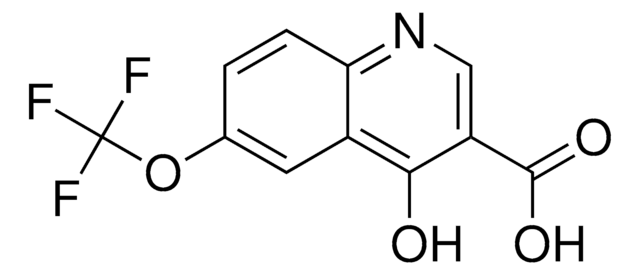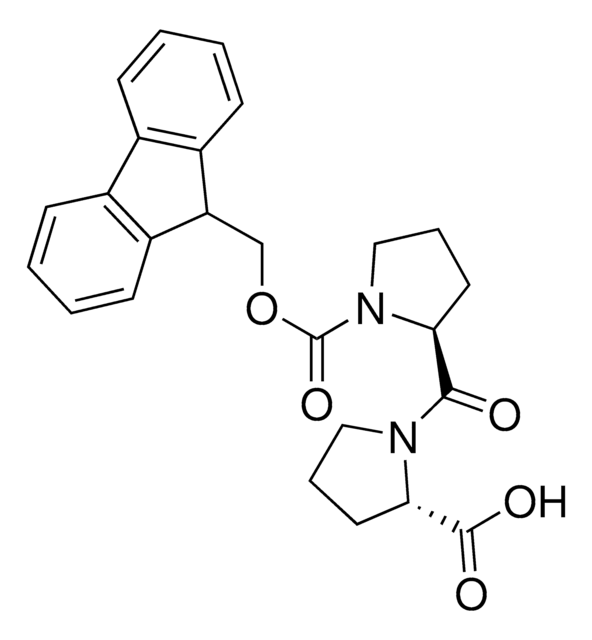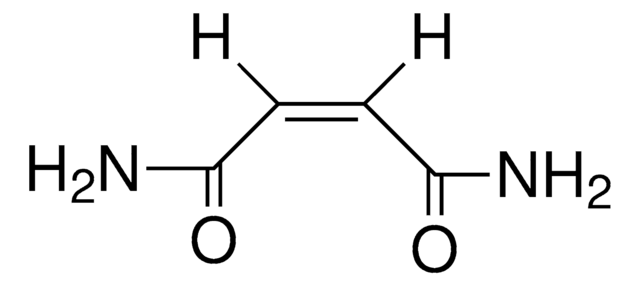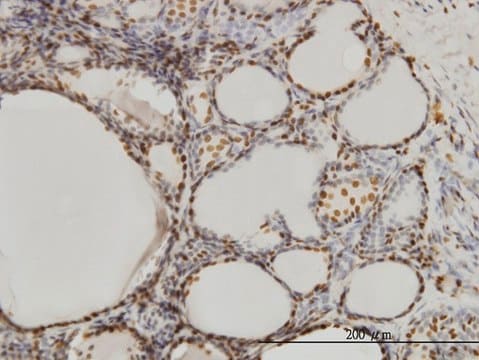P2860
Monoclonal Anti-PSF antibody produced in mouse
clone B92, purified from hybridoma cell culture
Sinónimos:
Mouse Anti-Polypyrimidine tract-binding protein-associated splicing factor
About This Item
Productos recomendados
biological source
mouse
Quality Level
conjugate
unconjugated
antibody form
purified immunoglobulin
antibody product type
primary antibodies
clone
B92, monoclonal
form
buffered aqueous solution
species reactivity
mouse, human
packaging
antibody small pack of 25 μL
concentration
~2 mg/mL
technique(s)
immunocytochemistry: suitable
immunohistochemistry (frozen sections): suitable
immunoprecipitation (IP): suitable
microarray: suitable
radioimmunoassay: suitable using cells
western blot: 2-4 μg/mL using whole extract of cultured HeLa cells
isotype
IgG1
storage temp.
−20°C
target post-translational modification
unmodified
Gene Information
human ... TAP1(6890)
General description
Immunogen
Application
Immunofluorescence (1 paper)
Immunohistochemistry (1 paper)
Immunoprecipitation (1 paper)
- immunofluorescence
- immunohistochemistry
- immunoprecipitation
Biochem/physiol Actions
Physical form
Preparation Note
Disclaimer
¿No encuentra el producto adecuado?
Pruebe nuestro Herramienta de selección de productos.
Storage Class
12 - Non Combustible Liquids
wgk_germany
nwg
flash_point_f
Not applicable
flash_point_c
Not applicable
Certificados de análisis (COA)
Busque Certificados de análisis (COA) introduciendo el número de lote del producto. Los números de lote se encuentran en la etiqueta del producto después de las palabras «Lot» o «Batch»
¿Ya tiene este producto?
Encuentre la documentación para los productos que ha comprado recientemente en la Biblioteca de documentos.
Nuestro equipo de científicos tiene experiencia en todas las áreas de investigación: Ciencias de la vida, Ciencia de los materiales, Síntesis química, Cromatografía, Analítica y muchas otras.
Póngase en contacto con el Servicio técnico








